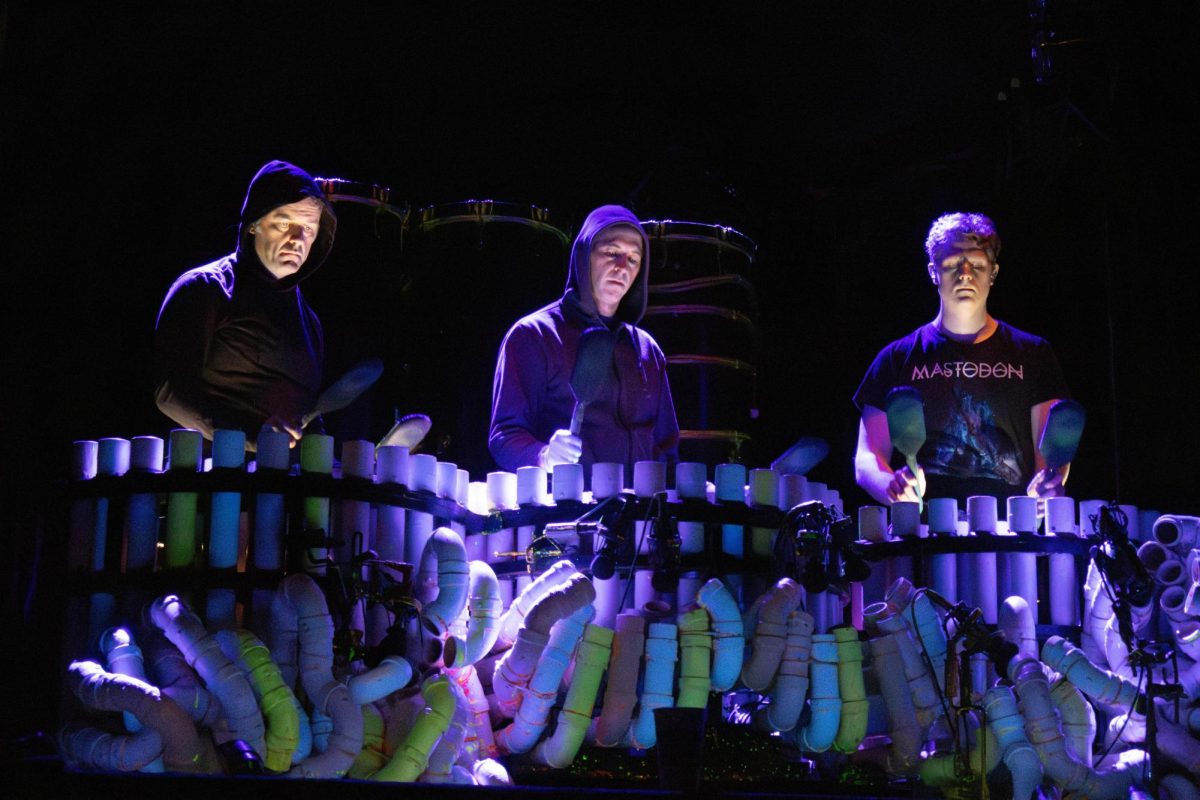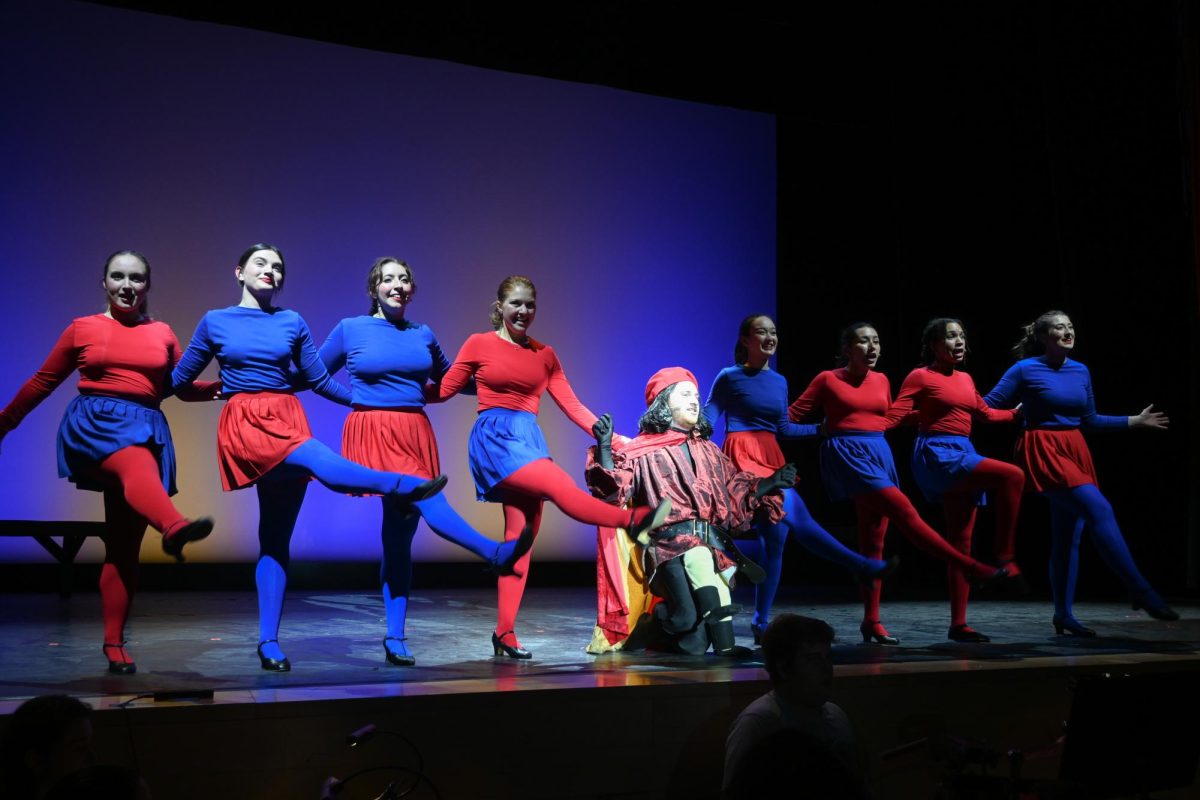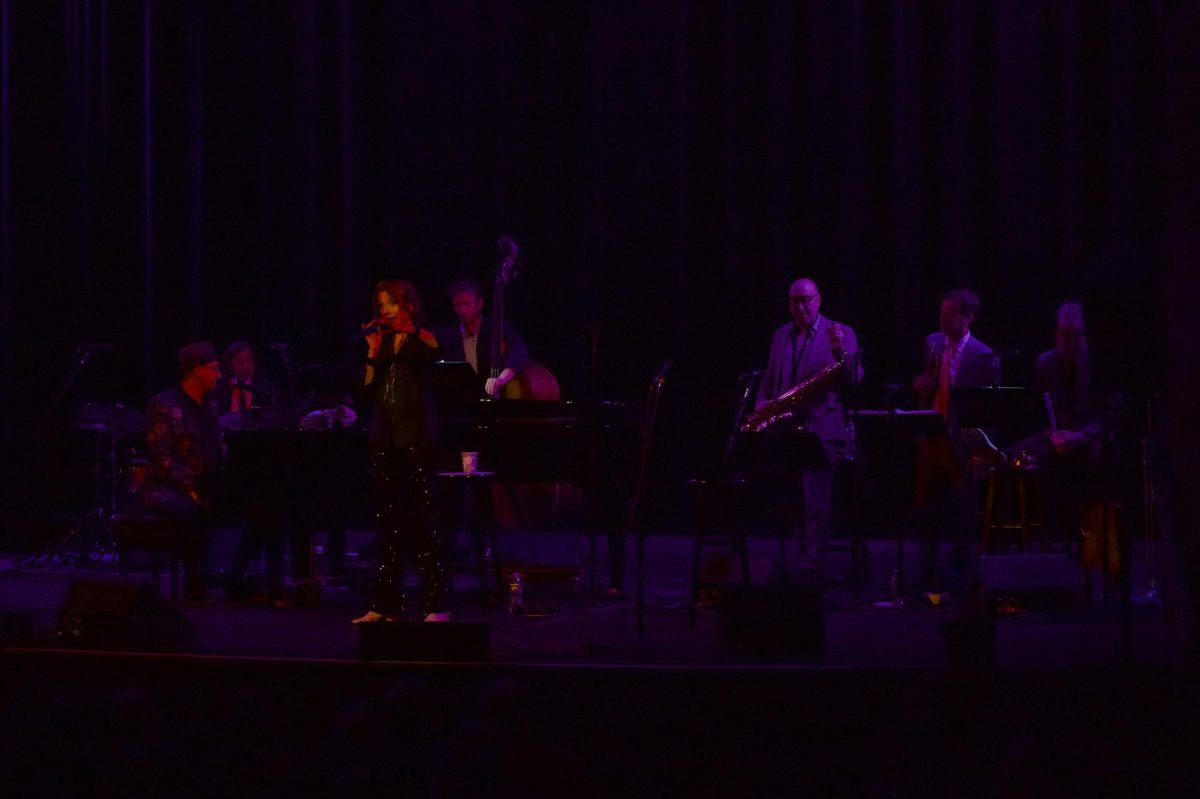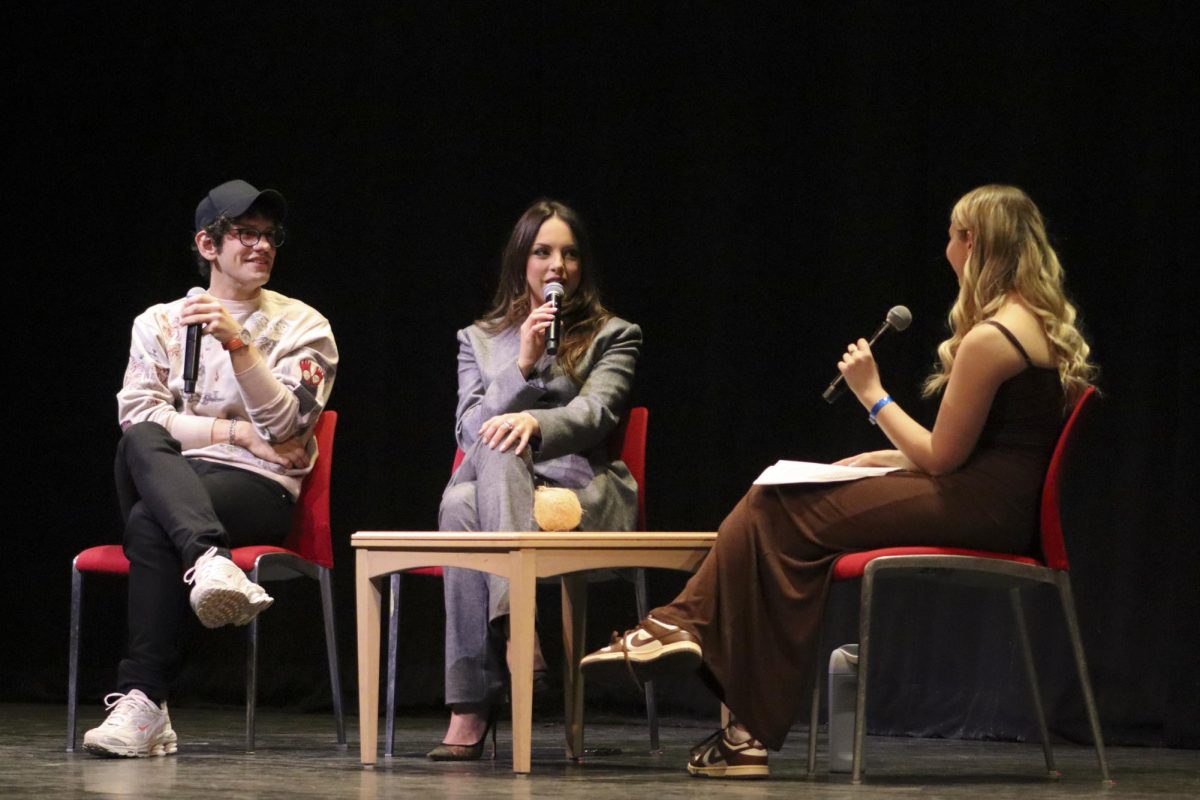Most Bostonians are familiar with the iconic Blue Man Group, whether they’ve seen them on a billboard or have actually attended a show. But who are the performers that make the show happen? With the group’s unusual style of mute performances and audience engagement, their shows can be hard to define.
Corey Phillips, the senior associate company manager at Blue Man Group Boston, summarizes the show as “a unique theatrical experience,” looking to “bring joy and connection to the audiences.”
The Blue Men certainly nail that goal, as the show involves paint, marshmallows and lots of laughter. At their Oct. 17 show, audience members roared as the men splashed each other with paint and called audience members up on stage to participate in bits. The Blue Man Group’s website advises audience members sitting in the “splash zone” to wear clothes that will not need to be dry cleaned.
Right from the beginning, the show incorporates audience engagement. Various members were called up to participate in a sort of “fake wedding,” which was met with lots of screaming from the audience.
Adam Erdossy, a member of the Blue Man Group since 2006, explained that this element of audience engagement is what sets the show apart from other theatre.
“It’s not just the audience that’s sitting in seats; it’s the audience we bring up on stage,” Erdossy said. “That is the most important thing that can change everything about an entire show.”
In addition to this element of audience engagement, the physical space they perform in is also unique.
John Parker, the carpentry and automation supervisor for the group, said the group’s set at the Charles Playhouse has become a staple.
“If you think about a regional theatre house that does seven shows a year, they’re building a set, installing it, and it’ll run for a couple of months before they take it down. We have put up this one show and we’re keeping it the same for 30 years, so we’re very much in the maintenance game,” Parker said.
Audiences often have mixed reactions to the show, said Isabella Ghiozzi, who works the box office at the Charles Playhouse.
“Sometimes it’s really rowdy and loud and over energetic. Sometimes people are like, ‘What is this?’” Ghiozzi said.
Because the show is so unique, both in content and production, it takes a variety of roles and personalities to keep it running — but easily the most essential are the Blue Men themselves.
Throughout the show, they perform various dances and bits, all with straight faces, setting an almost sarcastic witty tone. The premise of the show, that the Blue Men are aliens, arriving on Earth with no conception of where or who they are, adds to their sense of “discovery” when they catch marshmallows, or learn how to dance.
One has to wonder, how do you find yourself in a career where you paint your entire body blue and perform various bits on stage?
For Erdossy, who has training in traditional theatre, it was the combination of physical theatre and music, without being a musical, that attracted him.
The group’s drummer and music director, Randy Wooten, credits his local connections from attending the New England Conservatory in Boston with introducing him to the gig.
“I was trying to survive as a musician. We used to have an open jam here, actually at the theatre, and that’s how I ended up meeting some musicians that worked for Blue Man,” Wooten said.
Jason McLin, who has been performing in Boston as a Blue Man since 2011, explained that each of the performers all use their varied backgrounds to bring something different to the performance.
“Depending on whatever that background is, it dictates to what extent a person has to figure out the character, and for some of us, that’s more difficult than others,” McLin said.
Once the group knows what they want to portray and bring to the performance, they take to the stage. While performing, it can be difficult not to laugh as they perform funny bits, Erdossy said. However, within that comedy, there’s also a certain kind of beauty — and it can get rather philosophical, he added.
“For me, really, it’s about inhabiting this sense where the Blue Man has no real sense of himself,” Erdossy said. “He’s not judgmental about anything. So it’s real practice in getting to inhabit this character that is just curious.”
This penchant for being nonjudgmental and curious seems to be what the group is all about — along with having fun. Because they are blue, they are already “othered” and kind of weird, which gives audiences permission to be weird too.
Michele Karas, who works on the security staff at the Charles Playhouse, explained that this weirdness and sense of community it fosters initially drew her to working at the theatre. Karas even went so far as to label the group a family.
“I think it’s all about family, having fun and really being a part of a community that allows you to have fun in the theatre,” Karas said.
While this sense of community and inherent weirdness has always been at the center of performances, the show has evolved from different versions over the years.
These changes involve technology and demonstrate how the show interacts with different forms, Parker said.
For example, in the most current rendition of the show, the Blue Men interact with images of iPhones, and even make references to AI. But it wasn’t always this way.
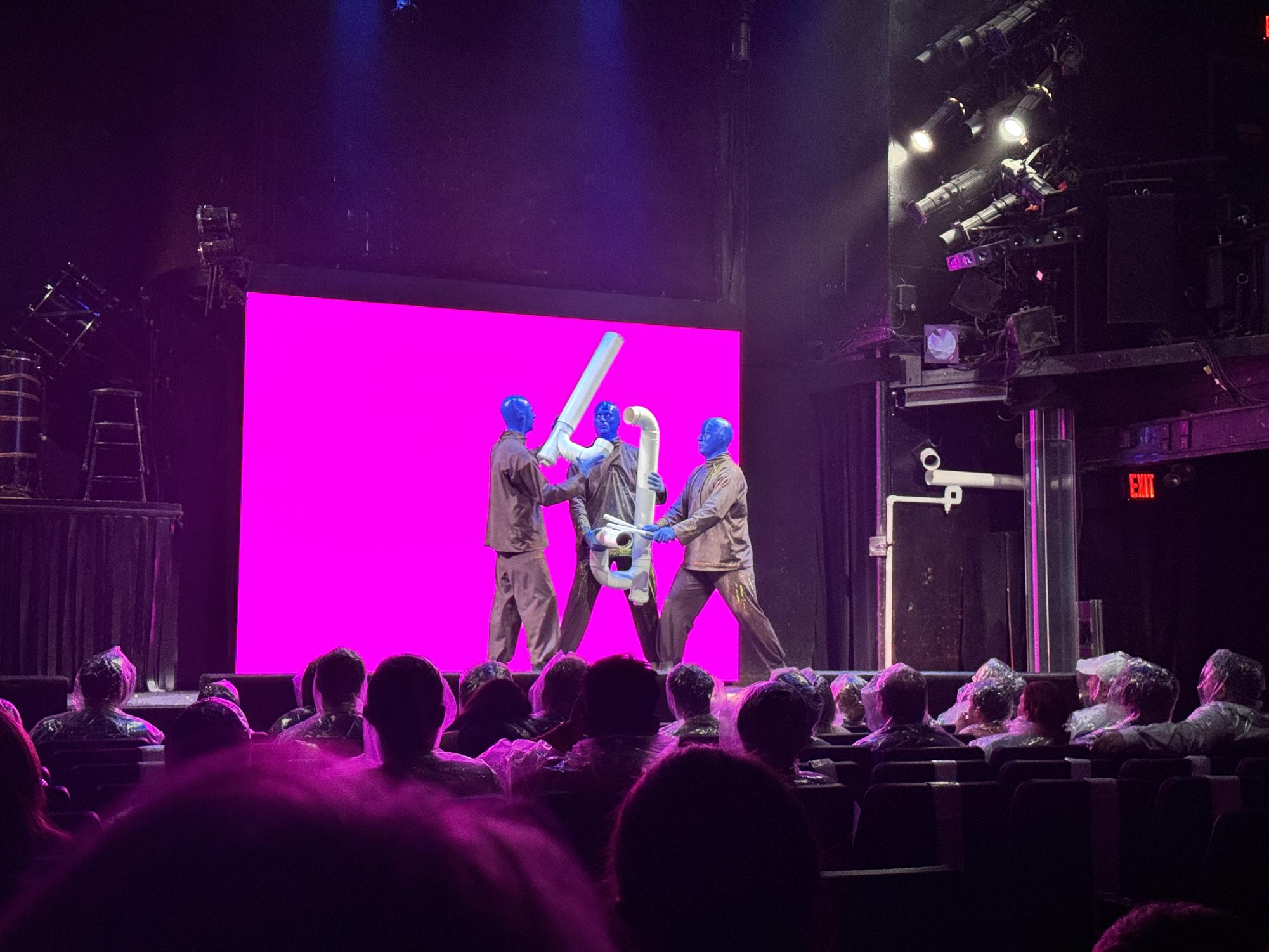
“The show has tried to stay current with the things that we’re commenting on,” Parker said.
In the most current version, the show comments on screen time and has a musical interlude where various anti-screen phrases flash on screens. An avatar repeatedly falls into a hole and gets hit by cars after being preoccupied with its screen, hinting at themes of technological dependency.
Beyond these broader themes, at its core, the Blue Man Group and all the crew members that work on the show understand that it’s about community, especially in Boston. For Erdossy, the Blue Men aim to provide a certain environment, but it’s up to the audience what they choose to take away from it.
“The characters being silent allows the people to interpret things in their own way, because the Blue Man’s not up there telling you how to feel or how to experience the show — you do that on your own, and with the people around you,” Erdossy said.
This strong sense of community is prevalent not only in the band and with audiences, but also within the Playhouse.
Ghiozzi said she began selling merchandise and has now expanded to ticket sales and front-of-house roles, hoping one day to dip her toe into stage management. The ability to learn and grow, she said, is fostered by the community within the Playhouse.
“It’s such a community-based workplace. It’s so easy to really get to know the people that you work with and spend time here and expand your role and your job,” Ghiozzi said.
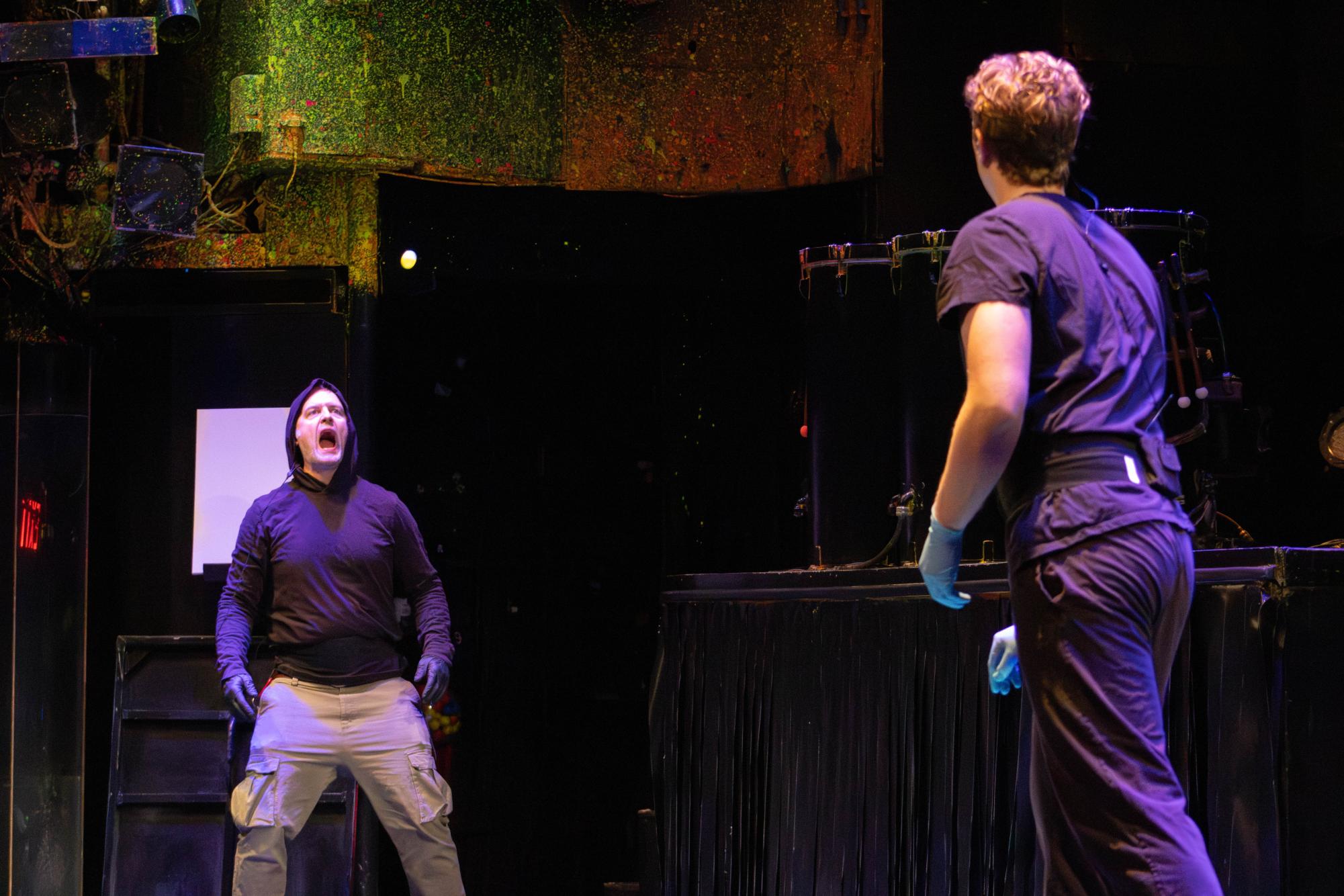
The Blue Men say they feel privileged to have been able to perform in Boston for so long and become a mainstay in the area. Erdossy explained that when people express appreciation for the Blue Men or the performance in general, it’s a great reminder of how special it is.
“It’s easy for us to forget how special it is because this is our daily life,” Erdossy said. “So when people remind us of this sort of mystery or impact or whatever fascination it is, it’s just a really nice reminder of what a pleasure and honor it is to do this job.”



